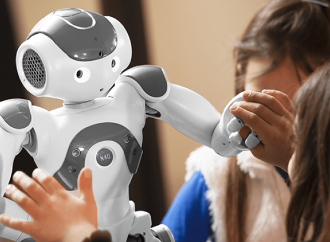
The Role of Social Robots in Modern Education at the University of Malta
In recent years, the integration of social robots into educational settings has shifted from an experimental concept to a tangible reality. The University of Malta stands at the forefront of this technological revolution, exploring how social robots can significantly enhance learning experiences, particularly in early childhood literacy and inclusive education. This innovative approach aims to create more engaging, personalized, and inclusive classrooms that cater to diverse student needs.
Social robots are autonomous entities equipped with human-like features such as voice interaction, gestures, and facial expressions. They have the potential to act as tutors, facilitators, and companions within the classroom, thereby transforming traditional pedagogical methods. The University of Malta’s research indicates that these robots can mediate social interactions, foster self-awareness in children, and support inclusive educational practices. As Malta leads in this field, it opens new pathways for educational development that align with contemporary digital literacy demands.
Understanding the Impact of Social Robots in Early Childhood Literacy
One of the most promising applications of social robots is in early childhood literacy education. According to research conducted by Professor Charles L. Mifsud and his team at the Centre for Literacy, these robots can significantly contribute to literacy development among young learners, including children with special educational needs. Robots are programmed to recognize individual students and reference previous interactions, thereby creating a sense of familiarity and trust.
By engaging children through multimodal tools—such as digital whiteboards alongside social robots—educators can support various communication styles. This multimodal learning environment caters to verbal and non-verbal communication, reducing misunderstandings and increasing student engagement. For example, non-verbal children, who might struggle with traditional teaching methods, can benefit from interactions with robots that use gestures and expressive cues to facilitate understanding.
Enhancing Inclusive Education with Social Robots
Inclusive education aims to support all students, regardless of their abilities or disabilities. The research at the University of Malta emphasizes that social robots can be instrumental in this mission. They serve not only as tutors but also as personalized learning companions and teaching assistants, adapting their behavior to meet individual student needs.
For children with disabilities, robots can act as supportive tools that promote social engagement and language development. For instance, a social robot can provide consistent, non-judgmental interaction that encourages children with speech or social challenges to practice communication skills in a non-threatening environment. This fosters inclusion by allowing children with diverse needs to participate fully in classroom activities alongside their peers.
The Multimodal Approach: Combining Robots with Digital Tools
The integration of social robots with digital media enhances learning outcomes by supporting diverse cognitive and communication styles. The use of interactive whiteboards alongside robots offers a rich, multisensory experience that heightens engagement and comprehension. This approach also reduces ambiguity in robot behavior, increasing trust and motivation among young learners.
Further, features such as voice interaction and gestures allow robots to emulate human-like qualities, making them more relatable and effective mediators of learning. This is particularly important for non-verbal children or those who require alternative communication methods, as these features support emotional connections and sustained attention.
Roles and Benefits of Social Robots in the Classroom
Research from the University of Malta outlines various roles that social robots can perform within educational environments:
- General Tutor: Delivering educational content interactively to make learning engaging.
- Personalized Learning Companion: Supporting individual students based on their unique learning needs.
- Teaching Assistant: Supporting teachers by facilitating activities and managing classroom dynamics.
- Language and Literacy Mediator: Facilitating language acquisition and literacy skills through interactive conversations.
These multifaceted roles contribute to a more inclusive, dynamic, and engaging learning environment. The robots’ adaptability and constant availability make them valuable assets for fostering motivation, participation, and self-confidence among children.
The Future of Education in Malta and Beyond
Malta’s pioneering work with social robots signals a broader shift towards integrating advanced technology into mainstream education. The University of Malta’s initiatives not only demonstrate the practical benefits of social robots but also set an example for other institutions aiming to adopt innovative pedagogical tools.
As research continues and technology becomes more sophisticated, the potential applications of social robots will expand. From supporting early literacy to addressing complex inclusion challenges, social robots promise to make education more equitable and effective for diverse learners.
Take the Next Step
Interested in studying at the University of Malta? Fill out the form to get personalized support from a Studygram expert counselor. We’ll guide you through program selection, admission requirements, and the application process, making it easier for you to take the next step toward your academic goals in Malta.

